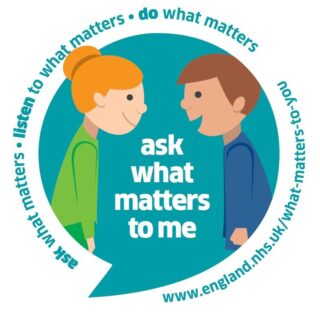Q Exchange
Shared decision making in maternity
- Idea
- 2018

Clinicians, health care staff, and community health workers around the world seek to understand the comprehensive needs and goals of the patients they serve. Yet, in the busy world of clinical care, there are innumerable situations where what really matters to patients and their family members is not understood or addressed. In maternity care this can be particularly challenging – is not unusual for the clinical situation to change in unexpected ways, patients asked to take decision under stressful situations or discomfort or when the risks/ benefits are not clear cut. Cultural differences and expectations around maternity can also play an important role. In their 2012 New England Journal of Medicine article<http://www.nejm.org/doi/full/10.1056/NEJMp1109283>, Dr. Michael Barry and Susan Edgman-Levitan introduced the concept of asking, “What matters to you?” as well as, “What is the matter?” in the context of implementing shared decision making. We want to share their ambition to increase clinicians’ awareness of important issues in their patients’ lives that could drive customized plans of care. In Maternity care decision making is very often based in balancing risk and benefits. This is often described in numerical forms, either as specific risks (1% risk, 1 in a 100 risk) or risk increments (the risk is 3 times higher…). This is not always well understood and there is already some work done that suggests that the use of infographics can help risk perception and aid decision making. We want to use learning from conversational analysis in healthcare alongside visual design principles to create resources to support shared decision making in common obstetric situations.
How you can contribute
- Linking with similar initiatives in other organisations and care settings so we can build on existing learning.
- Supporting us to identify experts to help inform the co-design of interventions.
Comments
Gill Phillips 19 Jun 2018
Yes, involving women and families and seeding / nurturing Maternity Boices Partnerships is what #MatExp does continuously. Have just got back from inclusive #MatExp Whose Shoes workshop in Corby today : 22 mums, dads & ?? & 18 healthcare professionals https://twitter.com/fwmaternity/status/1008999192734380032?s=21
Friday was London, yesterday Liverpool, today Corby, tomorrow Birmingham, next week Exeter. Florence Wilcock, Kingston, had the vision to start this maternity coproduction work and we have done other work other areas of Kingston hospital (e.g. theatres, admin) so lots of scope for Kingston to build on this.
Flo 19 Jun 2018
Delighted my colleague Susana wants to co produce this idea with women using the expertise we have already built through #MatExp and maternity voices partnerships. I know from her previous work that Susana will also involve our trainees in this quality improvement which sets them off to be good clinicians of the future by encouraging them to listen to the women and families we care for. Brilliant to have one of my obstetric colleagues join me in this sort of work
Gill Phillips 16 Jun 2018
Knowing the fab maternity team at Kingston Hospital, I’m sure the answer to Dougal’s question is ‘yes’ ! Florence Wilcock, consultant obstetrician at Kingston, is co-founder of #MatExp and co-chair of the London Maternity Voices Strategy Group. Her co-chair is Laura James, a ‘user representative’ on the national Maternity Voices Partnership. Listening to women and families is at the centre of everything they do! ??
Jonathan Grellier 18 Jun 2018
Absolutely Gill! By using 'What matters to you' as the starting point we hope to focus in on the elements of care and experience that women and their families tell us are most important. We then want to collaborate with those women to co-design our response. I think there is a really fascinating and valuable opportunity for us to bring them together with our staff and experts from other fields to change how we communicate and support shared decision making. We want to identify experts in the fields of graphic design, behavioural insights and conversational analysis to help us take a new and effective approach.
Dougal Hargreaves 16 Jun 2018
Combining conversation analysis and visual design principles sounds like an exciting prospect! Would you be asking patients to help you design the details of this improvement project? It would be interesting to engage them in making sense of the data gathered for conversation analysis too.
Jonathan Grellier 19 Jun 2018
Thanks for your input and support, Dougal. We'd definitely like to directly involve women and their families in generating insight from data in this project and then using that insight to design our interventions. Please click on 'support this idea' if you would like to see our proposal make it through to the shortlist!
Susana Pereira 17 Jun 2018
Thanks for you comment! Patient involvement is definitely part of the plan!! Do you have any suggestions or anyone to suggest for the conversation analysis? This is all very exciting but very new!
Gill Phillips 15 Jun 2018
Looking forward to hearing more about this important project and supporting you in anyway I can. I know that Kingston Hospital maternity unit introduced a ‘free text comments’ opportunity at the first antenatal appointment and this has made a difference difference in enabling open and honest conversations between women and healthcare professionals throughout pregnancy.
This new practice has been written up as one of our #MatExp ‘Nobody’s patient’ case studies so that other trusts can learn and replicate this simple but important quality improvement.
‘What matters to you’ can be anything from practical things such as making appointments at a suitable time through to knowing about deep fear of childbirth, perhaps due to childhood sexual abuse.
No one can guess what really matters to an individual and it is essential to have tools that help people ask in an appropriate way so that true personalised care can be offered.
Comments are now closed for this post.